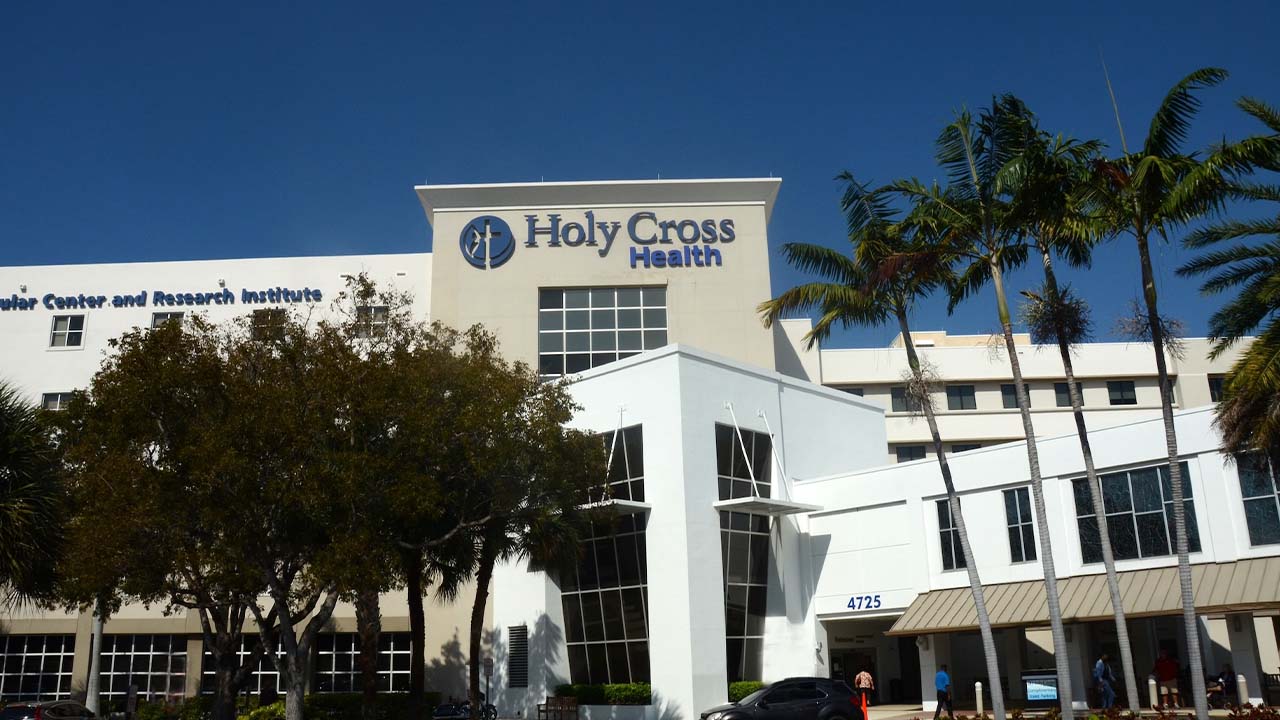Low hormone levels are a problem for many of us, but nurse practitioner Carolyn Zaumeyer has solutions. Zaumeyer is the force behind LowTE Florida and is an expert in bio-identical hormones, which are plant-based and chemically identical to the hormones the body produces. She is an advocate of hormone pellet implants, which can last for 3-5 months for women and 5-7 months for men. As the blood supply passes by the pellets, it picks up the micro pieces of it to gently raise hormone levels during the first 4-6 weeks then holds the levels steady for the rest of the time.
“What we use is the right hormone — bio-identical — the right dose. I scientifically calculate your dose, and the safest delivery system – the pellets” she says. Men are tested four weeks after the pellets and women six weeks after the pellets are inserted and if it is determined you would benefit from more, she does so at no additional charge. “We just want to get you to the appropriate levels comfortably and safely.”
Bio-identical hormone replacement therapy for women helps reduce hot flashes, depression and mood swings while increasing energy, sex drive, and overall physical health. Besides patients, she gets many referrals from local doctors, including two well-respected oncologists who are up to date on the latest research.
Zaumeyer was the first nurse practitioner in Florida to open a hormone practice and is ranked No. 1 in the state and in the top 10 nationally. A global map in the hallway of her office shows a lot of patients travel from across the country and even overseas to get her bio-identical hormone treatments.
She has also developed a line of 12 private-label health supplements that can be ordered on LowTEFlorida.com. Two of the most popular are FreeTE, which promotes hormone health, and Citrus Slim, which helps moderate hunger hormones.
Biggest Complaint: Fatigue
When she started LowTE Florida, Zaumeyer thought libido and sexual function would be the No. 1 issue, but fatigue is the biggest complaint for both men and women.
“When our hormones decline naturally over time, fatigue kicks in and you feel more apt to sit in the chair with a remote than to get out and do things,” she says. Sleep and weight gain are the next biggest concerns, followed by libido and sexual satisfaction.
“After treatment, most people say they get a nice, delicious sleep, wake up feeling more refreshed, and feel more like working out. When they do work out, they get better results. Without an optimal testosterone level, you can’t build muscle,” she says. Anxiety and depression are less for both men and women along with increased sexual desire and satisfaction (and more!).
While people may associate testosterone with men, women’s bodies also produce it. Testosterone is often the first hormone to decline in women, so she has some patients in their 30s. Sometimes, the lab work can’t even detect any testosterone, which can explain a lack of sexual desire along with anxiety, depression, mood swings and problems sleeping.
“My oldest patient is 92 and he’s still playing tennis,” Zaumeyer says. “I’ve had everybody across the board, male and female, of all different ages. I am asked daily – is my testosterone level normal? It may be in the normal range – but it isn’t ‘optimal’ if you are having the symptoms of low testosterone.”
Inspirational Family
Zaumeyer’s life journey is as interesting as her treatments.
Her great uncle, Fred Conrad Koch, was chairman of the Department of Biochemistry at the University of Chicago and director of biomedical research at Armour and Co. He was a pioneer in testicular function and isolated testosterone for the first time, Zaumeyer says.
Zaumeyer’s mother had shown her pictures of her great uncle from Life magazine, but it wasn’t until she was training in Texas that she understood just how important he was in the field of hormone research. The Fred Conrad Koch Lifetime Achievement Award is the highest honor given by the Endocrine Society, even though he died in 1948.
These days, Zaumeyer still marvels at how she prescribes testosterone, which her great uncle was instrumental in isolating.
Zaumeyer was inspired by her great aunt Edna, who was a nurse to the stars in California. Edna would regale her great niece about how wonderful it was to be a nurse when she visited the Zaumeyer’s family horse farm in California when she was a child. Decades later, Zaumeyer says she has a lot of prominent South Floridians and a few stars who visit her, including a Scottish TV actress who flies in every three months for treatment.
She received a one-year vocation degree and became a surgical tech and worked at Las Olas Community Hospital. A supervisor strongly encouraged her to further her education and arranged the surgery schedule so she could go to Broward College. She got hired as a Renal Perfusionist on the transplant team at the University of Miami and worked her way through school.
She transferred to Miami-Dade College for her associate’s degree. Then she went to FIU for her Bachelor’s degree, Nurse Practitioner Certificate and finally, completed the Masters of Nursing program, graduating in 1992.
After working with a doctor in west Broward for two years, Zaumeyer opened a gynecology practice on the east side, built it up and later sold it to a nurse midwife. She retired at 40, but a doctor she had worked with was ready to retire and said she should take over his practice. Initially she resisted.
“Then finally I said, ‘OK, I need to go back to work.’ It was making me crazy being retired. So, I took over his practice in Davie, and it was just a mess. I ended up trimming it down and getting rid of the bad employees … and then I brought it back to Fort Lauderdale. I was doing office gynecology, insurance-based, and so I was working very hard. I was supporting the staff, the office, but I wasn’t able to take a paycheck because of the horrible contracts.”
Meanwhile, the Women’s Health Initiative, a 13-year study launched in the 1990s, looked at the use of synthetic estrogen, with and without the use of synthetic progestin. The initial results reported were horrific and the study had to be halted. Newspaper headlines shouted that “Estrogen Causes Cancer.” However, after dissecting the research, Zaumeyer concluded what it really showed was that synthetic progestins were the problem, not estrogen! Progestins led to increased heart attack, deep vein thrombosis, breast cancer and Alzheimer’s Disease. Still, it was hard to change the perception that estrogen therapy does not cause cancer after that.
The latest research by Dr. Rebecca Glaser shows utilizing the testosterone pellets may reduce the risk of breast cancer by 30 to 40 percent.
After the WHI results were publicized in 2002, over 80 percent of women went off their hormone therapy. Zaumeyer had many patients who found hormone therapy to be life changing and she didn’t want them to go without. She began studying bioidentical hormones and traveled to study under some of the nation’s most renowned hormone experts.
“I wanted to have the confidence that I was able to provide hormones in the safest manner possible — the right amount, the right dose and the right hormones,” she says. “I just wasn’t quite getting it until finally I went to Texas and studied under Dr. Gary Donovitz and it all came together.”
Donovitz is an obstetrician, gynecologist, and hormone specialist who founded the Institute for Hormonal Balance in Arlington and Prosper, Texas.
In 2013, Zaumeyer launched LowTE Florida and phased out her gynecology practice. “It’s just been growing, growing, growing. We’ve been very, very happy and very successful,” she says.
Bioidenticals vs. Synthetics
Zaumeyer confirmed the viewpoint that weekly testosterone shots (or any other delivery system) seem like a roller coaster as their effectiveness peaks and drops off.
The pellets Zaumeyer uses are a little bit bigger than a Tic Tac. After local anesthetic is injected, a small incision is made to insert them. The testosterone in her pellets is derived from wild yams or soy and is exactly the same as the chemical molecule that is produced in humans.
She said the bioidentical hormones fit into the body’s receptor sites all throughout the body like a lock and key while synthetic hormones are like a square peg going in a round hole – you get some symptom relief, but the rest is left to wreak havoc throughout the body.
“If you take a shot of testosterone, it’s a huge amount of chemical going through your body that your body has to process — your liver, your kidneys, your heart. You feel like Superman for a couple days, but then it starts to taper off and before you are due for your next shot, you’re grumpy and miserable,” she says.
The idea that testosterone causes cancer has been debunked by Dr. Abraham Morgenthaler, director of Men’s Health Boston and an associate clinical professor of urology at Harvard University and Beth Israel Deaconess Medical Center.
In a 2023 YouTube video, Morgenthaler not only talks about his 30 years of study, which debunked the cancer theory, but also says testosterone is likely the single most important chemical that regulates health and medical-related issues. “It’s hard to think that there is anything else that competes with that,” he says.
Zaumeyer says, “When I first started providing pellet therapy, people are like, ‘Oh, my God, what are you nuts? You’re going to be killing people.’ It turns out that as time goes on, the research gets better and better and better, proving what I’ve been saying all along is right – that bioidentical hormones are protective for heart, brain, bones, breasts and relationships.”
She has written two books on entrepreneurship for Nurse Practitioners. Now, she has just finished a manuscript, Are you Hormone Curious? The Science Behind Bio-identical Hormone Therapy” explaining the research and benefits of hormone therapy.
The bulk of her practice involves pellets, but she also does Botox, vaginal rejuvenation and weight loss.
The patient process starts with a phone call to her office or filling out a patient packet on LowTEflorida.com. Orders are given for bloodwork and then there’s a free initial consultation over the phone.
Unfortunately, most insurance companies won’t cover pellet therapy, although they may pay for the bloodwork – the cost for men is either $700 or $800 per treatment (depending on the dose) and $400 per treatment for women.
“What the insurance companies come back with is that what we do is experimental,” she says. “The pellets we use have been used safely in this country since 1939. I think the experiment’s over.”














